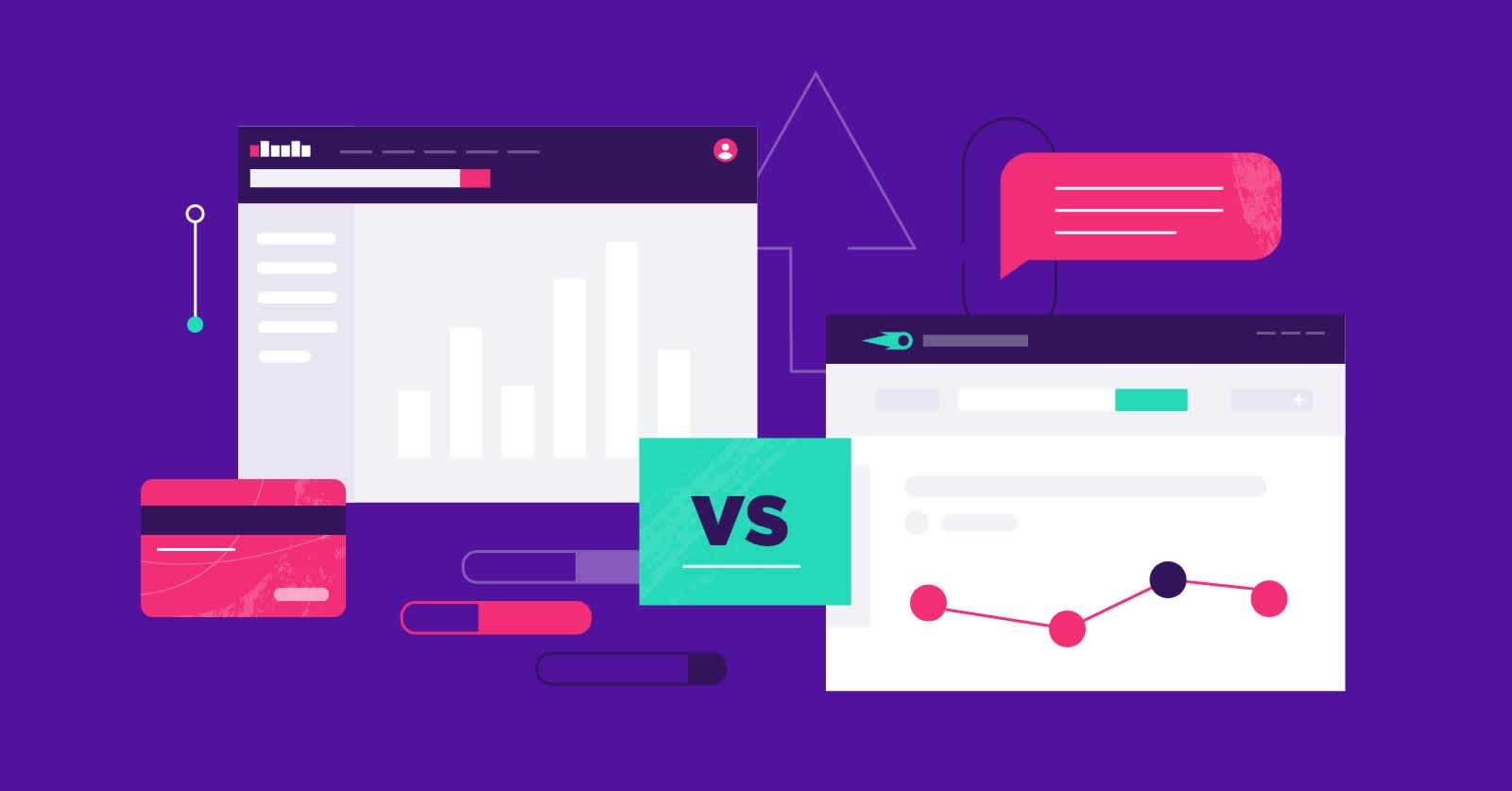The scene of Search Engine Optimization (SEO) is projected constantly and understanding various aspects of it is no mean feat. A component that plays a pivotal role in SEO is keywords. Recognizing and utilizing these can significantly bolster the ranking of your website on search engines like Google. Let's dissect the different types of keywords in SEO.
Short-tail Keywords or Head Keywords
Simply called 'head keywords', these are short, three words or less, very broad keywords that are generally high in search volume and competition. Although ranking for short-tail keywords might drive a lot of traffic to your website, the conversion rates could be comparatively low due to their generic nature.
Example: If you run a bakery, a short-tail keyword could be “cinnamon rolls”.
Long-tail Keywords
Opposing short-tail keywords, long-tail keywords are specific phrases with more than three words. They have fewer search volumes but can drive more targeted traffic, leading to higher conversion rates. Businesses, particularly new or small ones who are striving to make a mark in competitive sectors, should consider focusing on long-tail keywords.
Example: “Gluten-free cinnamon rolls in Brooklyn”
Geo-targeting Keywords
Also known as local keywords, these are specific to a geographical area. They generally contain the name of a city, state, or region. A geo-targeting keyword is pertinent for businesses targeting a specific geographical area, such as local shops or regional service providers.
Example: “Best bakery in Brooklyn”
Latent Semantic Indexing (LSI) Keywords
These are semantically-related keywords. Google uses these keywords to determine the quality of the content and how well it covers the subject matter. LSI keywords might not necessarily hold a direct relation to your keywords, but they correlate contextually.
Example: For the primary keyword “cinnamon rolls”, some LSI keywords could be “baking”, “icing”, and “pastry”.
Next, let's discuss the two main categorizations of Keywords:
1. Informational Keywords:
Used by searchers looking for more information about a certain topic, product, or industry. They have a wide range and cover a variety of details.
Examples include:
- How to make cinnamon rolls
- Best icing for cinnamon rolls
2. Transactional Keywords:
They indicate a searcher’s intent to make a purchase or transaction. They are vital for businesses focusing on boosting their online sales.
Examples include:
- Buy cinnamon rolls online
- Order gluten-free cinnamon rolls
Product Defining Keywords
As the name suggests, they describe what the product is. It might include the brand names, product type, or specific features of your service or product. They are highly targeted and generally draw in people who are further along in the purchasing cycle.
Example: “Gluten-free cinnamon roll mix”
Customer Defining Keywords
These target a specific type of customer or audience. They are useful for businesses that cater to a certain demographic audience.
Example: “Vegan bakery”
Intent Targeting Keywords
They target users based on their stage in the buyer’s journey. There are three main types of intent in SEO: navigational, informational, and transactional.
Example: “Brooklyn bakery menu” (navigational), “how to bake cinnamon roll” (informational), and “order cinnamon rolls online” (transactional)
Frequently Asked Questions about Types Of Keywords In Seo
What are the Basic Categories of Keywords in SEO?
There are three basic categories of keywords in SEO: Head, Body, and Long-tail keywords. Head keywords are usually a single word with a high search volume. Body keywords are 2-3 word phrases with a good search volume, not high, not low. Long-tail keywords are phrases with at least four words. They have a low search volume but can accumulate to bring significant traffic.
How Important are Long-Tail Keywords in SEO?
Long-tail keywords are highly specific search phrases that have a low search volume. They are valuable for businesses who want to rank well in niche markets. Compared to their shorter counterparts, they provide clear intent of the searcher. In other terms, they reveal more about someone who is in the process of purchasing or using a product.
What are Branded Keywords?
Branded keywords are search terms that include the name of your company or brand. They are essential to your SEO strategy as they help cultivate brand awareness and drive traffic from users who are already familiar with your product or service.
Can you explain about Local Keywords?
Local keywords are targeted geographical terms combined with your product or service that customers use in 'near me' searches. These are beneficial for physical businesses that rely heavily on walk-in customers.
How are LSI Keywords Significant in SEO?
LSI keywords or Latent Semantic Indexing keywords are related to your primary keyword. They help search engines understand the context of your content and thus increase its relevance to specific search queries.
What are Industry-Specific Keywords?
Industry-specific keywords are terms and phrases related to your specific industry niche. They might not have high search volumes, but they can help you draw more targeted and high-quality visitors to your site.
What's the Role of Transactional Keywords in SEO?
Transactional keywords are used when the user intends to complete a transaction. These can be combined with other words to create long-tail keyword phrases. For an online store, these could be 'buy', 'purchase', 'order', etc.
Can you Define Commercial Investigation Keywords?
Commercial investigation keywords are phrases that users type into search engines when they are close to making a buying decision, but they need more information before they feel comfortable enough to purchase.
Pros and Cons of Types of Keywords in SEO
Short-tail Keywords
Pros
Higher Search Volume: Short-tail keywords typically have a high search volume because they are more general and thus have a wider reach. If your content ranks for a short-tail keyword, it could mean a lot of organic traffic.
Brand Visibility: These keywords can provide significant visibility. When your website ranks for these keywords, you're likely to get noticed by a larger audience.
Ease of Use: They are often easier to incorporate into content naturally as they typically consist of one or two general words.
Cons
High Competition: Short-tail keywords face intense competition as many businesses try to rank for the same broad ideas. This makes it more difficult to rank high in search results.
Less Targeted: These keywords are less specific, meaning the people searching them could be looking for any number of things. The traffic generated might not necessarily be the target audience for your specific content or product.
Long-tail Keywords
Pros
Less Competition: Long-tail keywords are more specific, which means they have less competition in search results. This makes it easier for your content to rank higher.
Highly Targeted Traffic: These keywords are more specific and thus draw in more targeted traffic. Visitors who come to your site via long-tail keywords are more likely to be interested in your product or service.
Higher Conversion Rate: As long-tail keywords attract a more targeted audience, the conversion rate is generally higher compared to short-tail keywords.
Cons
Lower Search Volume: Due to their specificity, long-tail keywords tend to have lower overall search volumes. This might result in drawing fewer visitors to your site.
Not Always Natural in Content: Incorporating long-tail keywords into your content in a way that sounds natural can sometimes be a challenging task.
Geo-targeted Keywords
Pros
Localized Advantage: Geo-targeted keywords allow businesses to target their local market effectively and could help improve local SEO.
Less Competition: Geographically specific terms are less likely to have as much competition, making it easier for local businesses to top the search results.
Cons
Limited Reach: The use of these keywords limits your reach to a particular geographic location. If you want to appeal to a broader audience, this could be a significant disadvantage.
Limited Volume: Similar to long-tail keywords, geo-targeted keywords often have far fewer search volumes compared to more general keywords.
LSI (Latent Semantic Indexing) Keywords
Pros
Improves SEO: LSI keywords can improve your SEO because search engines use them to understand the context and relevancy of your content.
Reduced Over Optimization Penalties: Using LSI keywords reduces the risk of being penalized for keyword stuffing, as they allow you to use similar words instead of repeatedly using the same keyword.
Cons
Requires Good Understanding: Identifying and properly using LSI keywords requires a good understanding of your content and related concepts, which might be challenging for beginners in SEO.
Overuse Can Be Harmful: Just like other keywords, excessive use of LSI keywords can lead to penalties as it can be seen as keyword stuffing.
Summary
Knowing the different "Types of Keywords in SEO" cam significantly boost a website's online visibility and improve traffic. Understanding the nuances between short-tail, long-tail, and LSI keywords allows you to develop a more targeted and effective SEO strategy, catering to the diverse needs and search patterns of your audience. By including these types of keywords in your content, you can ensure that you're not only improving your search ranking, but also providing relevant and quality content to your users.
Mastering the art of keyword selection can be a real game-changer in your SEO game. Using the right mix of the types of keywords in SEO can guide you to higher organic rankings and increase click-through rates. Utilizing the short-tail keywords for their high search volume, long-tail keywords for their specificity and lower competition, and LSI keywords to reduce chances of keyword stuffing while increasing relevancy, can altogether create a powerful SEO-optimized content.
Moreover, remember that using keywords in SEO is not just about search engine rankings. It's about connecting with your audience, understanding their intent and meeting their needs. Don't fall into the trap of keyword stuffing and instead, focus on creating high-quality, engaging content that seamlessly integrates these different types of keywords. Now, get out there and start creating content that's not just keyword-friendly, but also reader-friendly!
About WebPerfex
WebPerfex is a premier digital marketing agency based in Sacramento, CA, serving a wide array of businesses with cutting-edge solutions. We live and breathe the internet and thrive on staying ahead of digital marketing trends. Our team prides itself on understanding both the online landscape and the needs of our clients, providing personalized strategies to elevate businesses in a crowded digital space. Whether it's SEO, website design, or social media management, WebPerfex delivers unique and effective solutions that let businesses shine. Work with us and discover how we fuse creativity, technology, and data to create a winning online presence for you.




